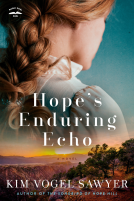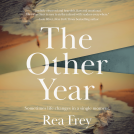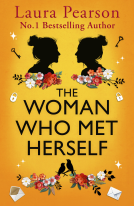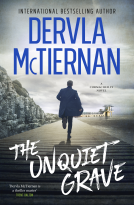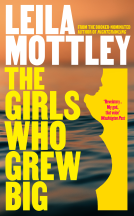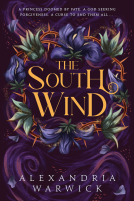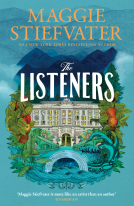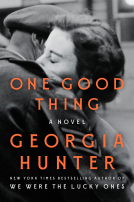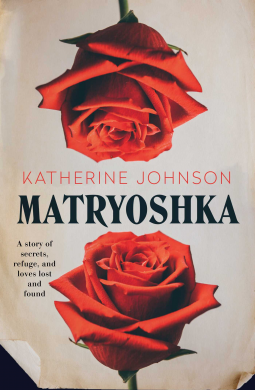
Matryoshka
by Katherine Johnson
This title was previously available on NetGalley and is now archived.
Send NetGalley books directly to your Kindle or Kindle app
1
To read on a Kindle or Kindle app, please add kindle@netgalley.com as an approved email address to receive files in your Amazon account. Click here for step-by-step instructions.
2
Also find your Kindle email address within your Amazon account, and enter it here.
Pub Date Oct 01 2018 | Archive Date Sep 30 2018
Simon & Schuster (Australia) | Ventura Press
Talking about this book? Use #Matryoshka #NetGalley. More hashtag tips!
Description
When Sara Rose returns to live in her recently deceased grandmother’s Tasmanian cottage, her past and that of her mother and grandmother is ever-present. Sara’s grandmother, Nina Barsova, a Russian post-war immigrant, lovingly raised Sara in the cottage at the foot of Mt Wellington but without ever explaining why Sara’s own mother, Helena, abandoned her as a baby.
Sara, a geneticist, also longs to know the identity of her father, and Helena won’t tell her. Now, estranged not only from her mother, but also from her husband, Sara raises her daughter, Ellie, with a central wish to spare her the same feeling of abandonment that she experienced as a child.
When Sara meets an Afghani refugee separated from his beloved wife and family, she decides to try to repair relations with Helena – but when a lie told by her grandmother years before begins to unravel, a darker truth than she could ever imagine is revealed.
Matryoshka is a haunting and beautifully written story about the power of maternal love, and the danger of secrets passed down through generations.
Available Editions
| EDITION | Other Format |
| ISBN | 9781925384635 |
| PRICE | A$29.99 (AUD) |
Links
Featured Reviews
 Victoria B, Reviewer
Victoria B, Reviewer
Matryoshka by Katherine Johnson is a beautiful story.
Sara recently separated from her husband in Brisbane, inherits her grandmother’s cottage in Tasmania. So, she decides to move to Tasmania with her daughter Ellie for a fresh start.
As I and my parents are also immigrants from Russia, like Sara’s grandparent, this book really spoke to me from the beginning and I loved how there is some Russian spoken in the story, which I understood.
This book tells us that secrets kept can affect many generations afterwards as each generation is connected to the one before and the one after just like Russian nesting dolls or Martyoshka.
Thanks to NetGalley and Simon & Schuster (Australia) for my e-copy in exchange for an honest review.
‘My grandmother’s life story comes to me in staccato flashes, for she refused to tell me many of the details, perhaps even the most important ones.’
Sara Rose has recently separated from her husband in Brisbane. Sarah’s grandmother, Nina Barsova, has recently died and left her cottage to Sarah. Sarah decides to return to Hobart with her daughter Ellie. She needs space in which to think about the future, and where better than the cottage in which she was raised by her grandmother at the foot of Mount Wellington. But returning to Hobart raises other issues for Sara. She is estranged from her mother, who has refused to tell her who her father was. And while Nina raised Sara lovingly, she has never known why Helena abandoned her. Sara is a geneticist: these gaps in her self-knowledge matter, and she would like some answers. This is even more important now: she may be separated from her husband, but she wants her daughter to know him.
As Sara settles into life in Hobart, she meets a number of men who have travelled to Australia by boat seeking refuge and who are waiting to have their status as refugees determined. One of those men, Abdhul, is an Afghani whose wife and children are in Pakistan. Sara befriends Abdhul and tries to help him. Sara’s friendship with Abdhul leads her to take tentative steps towards establishing a relationship with her mother. But there are family secrets to be uncovered as well.
For me, the major themes of this novel are identity, belonging and the impact of family secrets. Sara wants to find out who her father is and why her mother abandoned her. Abdhul wants a place of safety, and to be reunited with his family. Sara’s past contains secrets, some of which will be painful. And what can I say about the plight of those, such as Abdhul, who seek refuge in this country? I enjoyed this novel because of the setting, and because Ms Johnson raises some important albeit uncomfortable issues. Those issues for me include: just how important is the past in shaping the future? How do our perceptions of those around us guide our responses to their needs? How easy is it to erect the ‘us’ and ‘them’ barriers?
Note: My thanks to NetGalley and Simon & Schuster (Australia) for providing me with a free electronic copy of this book for review purposes.
Jennifer Cameron-Smith
 Marina M, Reviewer
Marina M, Reviewer
Sara Rose’s Russian grandmother Nina has died and left her a cottage in Tasmania. It is the catalyst Sara needs to change her life. Together with daughter Ellie she leaves her marriage and returns to her roots. Once there, she has a chance to contemplate the past and try to find answers to questions she has avoided for far too long. Why was she raised by Nina and not her mother, Helena, and why does she not even know the identity of her own father?
As she settles in, Sara becomes friendly with an Afghani refugee, Abdhul, who arrived in Australia by boat and is anxiously waiting to find out if he is eligible for permanent residence and whether his wife and children left behind in Pakistan can join him.
Sara’s abandonment by her own mother contrasts with her need to protect Ellie from witnessing the raw realities of life and wants her “to feel that love wrapped around her like the layers of the matryoskha” given to her by Nina and to let the child experience something of the “same magical childhood” that she enjoyed.
In her work as a geneticist, Sara becomes involved in a project researching whether trauma is inherited and this adds yet another level to the story. Nina’s traumatic refugee experience of an earlier era reflects off that of Abdhul in the Australia of today and yet Nina in her own way was not immune from prejudices, some of which go to explain Helena’s subsequent actions.
There is a great deal here to think about with all these layers: family secrets, morals and ethics, current politics, feminist issues, and ultimately those genetic components that might shape us and over which we have no control. There is a romantic relationship that doesn’t always find its place within such a strong and compelling storyline, but overall this is a tender and sympathetic read from Katherine Johnson in which the narrative flows well and it is highly recommended.
(With many thanks to NetGalley and Simon & Schuster Australia for an advanced reading copy.)
 Nikki A, Reviewer
Nikki A, Reviewer
A beautifully written story filled with unique characters and a fascinating family history. The relationships in Matroyshka are artfully drawn - so very complex and believable - and the Tasmanian setting is beautifully described. Highly recommended.
This book was nothing like I expected, I have been putting off reading it for a while, god knows why, but I'm very glad I have finally gotten round to reading it. It was much more than I expected and covered many important issues. We have the story of her grandmother Nina and her move to Australia many years ago to escape persecution in Russia, we learn how hard it was for her to fit into the community, how racist and afraid people were, but at the same time, how racist and afraid she was in her own behaviour towards others. We compare that to the refugees who are now coming to Australia to escape persecution and unfortunately nothing has changed, people are still racist and afraid and unwilling to get to know the person behind the differences and see the similarities.I thought Sara's friendship with refugee Abdhul was lovely and I liked the way Sara questioned things and stood up for her new friend and was willing to learn about these displaced people. We read about the trauma passed down to generations that is affecting so many generations of people today. I love how Sara uses science to try and get this message out. There are many secrets that are uncovered in Sara's life after the passing of Nina and many changes that occur in Sara and her families life. It is a story that drew me in and kept me reading.
Thanks to NetGalley and Simon & Schuster (Australia) for a copy in return for an honest review.
 Sue B, Reviewer
Sue B, Reviewer
Thankyou to NetGalley, Simon and Schuster (Australia) and the author, Katherine Johnson, for the opportunity to read a digital copy of Matryoshka in exchange for an honest and unbiased opinion.
I requested a review copy of this book as I was intrigued by the premise of the story it contained. I honestly can't say why I put off reading it for so long. But, I picked it up and was hooked. It is a beautifully written and thoroughly engaging story with very memorable characters.
Definitely well worth a read.
‘There’s a Russian proverb that says The fall of a leaf is a whisper to the living. So, whisper to me, Nina, now that you are gone. Whisper to me. I need your guidance. Tell me a story that makes sense of it all so that I can put all the pieces of the nesting doll that you gave me back together and, one day, tell this story to Ellie, my daughter, your great-granddaughter. For isn’t that what we do in life? Tell ourselves stories? Then retell them at day’s end to our children and grandchildren, so that they will learn and pass down the version we want remembered? One day I will give Ellie the matryoshka, but not yet.’
I seem to be on a streak of reading beautifully touching novels. Matryoshka is a novel that really took me by surprise. It's written in a way that I like to term ‘quiet': quietly beautiful, quietly atmospheric, quietly powerful, and quietly unforgettable. This novel made me ache, so many times, for the loss and the love, the inter-generational connections, and the truth of human frailty.
‘I can feel the hand-spun shawl of my grandmother’s love around my shoulders. I want Ellie to feel that love wrapped around her like the layers of the matryoshka Nina gave to me. I want her to experience the same magical childhood that I enjoyed, bejewelled in natural treasures and spectacle.’
Tasmania provides a sublime backdrop for this story. Katherine Johnson has infused the natural world into her narrative with such elegance, wrapping every scene up in a veneer of atmosphere that is entirely unique to Tasmania. It's clear that Katherine is not only familiar with the landscape of this area, but that she holds it dear and has the skill to convey this.
‘I picture the view from the summit when the mist clears: all the way to the wild southwest, still mysterious and, in parts, unchanged since the first white men – also immigrants of a kind – set their heavy feet here two centuries ago. There, if you walk off the track, you might be the first person of any origin to put your foot upon that exact square metre of earth, so wild and inaccessible are parts of this island.’
Sara is at a crossroads within her life. Beginning again on account of her husband leaving her, she's also coming to terms with the loss of her beloved grandmother, the woman who raised her. She's questioning things about herself, particularly with regard to her failed marriage. She wants to give her daughter a childhood similar to the one she had, but free of the notions of abandonment that Sara herself has carted around with her for her entire life. A chance discovery raises questions about her family history and the subsequent unveiling of the past has a dramatic effect on Sara's life.
‘How many of Nina’s sayings do I have in my head, each of them just waiting to re-emerge when the time is right, so I don’t forget how to live?’
Sitting along side Sara's personal story is another thread where parallels are drawn between refugees coming to our shores today and those that came here post WWII. Sara's grandmother came to Australia from Russia, and her experiences closely align in some ways to the refugees Sara meets in her neighbourhood, but in other ways, there is a vast variance. I appreciated the gentle debate that unfolds throughout this story, intelligently informing, highlighting the complications and the compassions.
‘But, I realise, he is not calm. He is simply losing hope, losing his will, little by little being ground down by the process. This is the process, the deterrent to stop others from coming by boat. Stop the boats. Break those who are here. Have them tell their friends at home that they should not leave.’
Everyone has an opinion, and everyone believes in the validity of their views. I felt that Katherine Johnson conveyed so much with a distinct absence of hysteria, reinforcing the power of her presentation. Sara's involvement with her new refugee friends leads her to a renewed focus on her research as a geneticist, particularly within the area of inherited trauma, a notion that is very personal to her given her family history.
‘The implications are profound. Not only do we inherit genetic changes that predispose us to certain diseases and characteristics, we also inherit our parents’ histories.’
Matryoshka ebbs and flows with pain and hope. As Sara builds her new life and carves out the foundations of a future for her child, some ghosts are laid to rest, some grievances are forgiven, and some mysteries are solved. Forgiveness and love underpin this story, flowing outwards from a beautifully intelligent narrative that will stay with you long after you turn the last page. Highly recommended.
‘Think about it. You actually owe it to your grandparents to enjoy your life. It was their gift to you.’
Thanks is extended to Ventura Press via Simon and Schuster Australia and NetGalley for providing me with a copy of Matryoshka for review.


